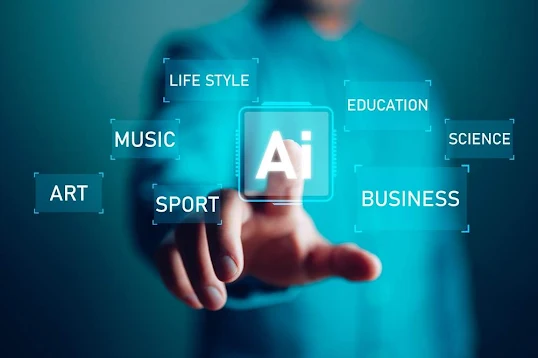Artificial intelligence (AI) has come a long way since its inception, revolutionizing the way we live, work, and interact with technology. From the early days of simple algorithms to the complex neural networks we see today, AI has made some incredible strides.
In this article, we're going to explore the top 10 breakthroughs in AI that you should know about, highlighting how these advancements are reshaping various industries and impacting our daily lives.
Defining Artificial Intelligence
AI is an umbrella term that encompasses a wide range of technologies designed to simulate human intelligence. This can include anything from simple rule-based systems to complex machine learning algorithms that can learn and adapt over time. Essentially, AI aims to create systems that can perform tasks that would typically require human intelligence, such as understanding natural language, recognizing patterns, and making decisions.
The Evolution of AI: A Brief History
AI has a rich history that spans several decades. It began in the 1950s with the advent of symbolic AI, where computers were programmed with explicit rules to solve problems. As technology evolved, so did AI, with the emergence of machine learning and neural networks in the 1980s and 1990s. Today, AI has become an integral part of our lives, with applications ranging from virtual assistants to autonomous vehicles.
AI in Everyday Life
AI isn't just something you hear about in tech conferences or academic papers—it's part of our daily routines. Let's look at some common areas where AI is making a difference.
AI in Smart Home Devices
If you've ever used a smart thermostat or a voice-activated speaker, you've experienced AI in action. These devices use AI to learn your preferences and adapt to your needs, making life more convenient.
AI in Virtual Assistants
Virtual assistants like Siri, Alexa, and Google Assistant have become ubiquitous. They rely on AI to understand and process voice commands, allowing you to control your devices, get information, and even tell jokes.
AI in Smart Transportation
AI is also making its mark on transportation. Ride-sharing services like Uber use AI to match drivers with passengers efficiently, while smart GPS systems use AI to find the fastest routes.
Top 10 Breakthroughs in Artificial Intelligence
Now that we've set the stage, let's dive into the top 10 breakthroughs in AI that are changing the world.
AI in Healthcare
AI is transforming healthcare by enabling early diagnosis and personalized treatment plans. Machine learning algorithms can analyze medical images to detect diseases like cancer at early stages, while AI-powered chatbots can assist with patient care and reduce the burden on healthcare professionals.
AI in Finance and Banking
The finance sector is harnessing AI to improve fraud detection and customer service. AI algorithms can identify suspicious transactions, while AI-driven chatbots provide customer support 24/7. Additionally, robo-advisors use AI to create personalized investment portfolios for clients.
AI in Autonomous Vehicles
Self-driving cars are no longer science fiction. Companies like Tesla and Waymo are using AI to create autonomous vehicles that can navigate complex traffic situations, making transportation safer and more efficient.
AI in Cybersecurity
With the rise of cyber threats, AI has become a crucial tool in cybersecurity. AI-powered systems can detect and respond to security breaches in real time, helping organizations protect their sensitive data.
AI in Natural Language Processing (NLP)
NLP is a subset of AI that focuses on the interaction between computers and humans through natural language. Applications like chatbots, voice recognition, and language translation rely on NLP to understand and process human speech accurately.
AI in Robotics
Robotics and AI go hand-in-hand, allowing robots to perform complex tasks with precision and flexibility. In manufacturing, AI-driven robots can work alongside humans, improving efficiency and safety.
AI in Machine Learning and Deep Learning
Machine learning and deep learning are at the core of many AI applications. These technologies allow computers to learn from data and improve their performance over time, leading to significant advancements in areas like image recognition and predictive analytics.
AI in Creative Arts
AI is making its way into the creative arts, helping artists and musicians explore new possibilities. AI-generated music and art are gaining popularity, with algorithms creating unique compositions and visual pieces.
AI in Gaming
The gaming industry has embraced AI to create more immersive experiences. AI-driven NPCs (non-player characters) can adapt to player behavior, providing a more dynamic and challenging gameplay experience.
AI in Climate and Environmental Science
AI is playing a role in combating climate change by analyzing large datasets to predict weather patterns and environmental changes. This information helps scientists develop more effective strategies for managing resources and reducing environmental impact.
Ethical Considerations in AI
With great power comes great responsibility. As AI continues to evolve, ethical considerations become increasingly important. Issues like privacy, bias, and job displacement are at the forefront of AI ethics discussions. It's crucial to develop AI systems that are fair, transparent, and respectful of individual rights.
The Future of AI
The future of AI is both exciting and uncertain. As AI technologies continue to advance, we can expect more automation and efficiency in various industries. However, it's important to strike a balance between technological innovation and ethical responsibility to ensure AI benefits society as a whole.
Conclusion
Artificial intelligence has made remarkable progress in recent years, with breakthroughs that are transforming industries and improving our lives. From healthcare to transportation, AI is making a significant impact. However, as we move forward, we must address the ethical challenges that come with these advancements. By doing so, we can harness the power of AI to create a better future for everyone.
